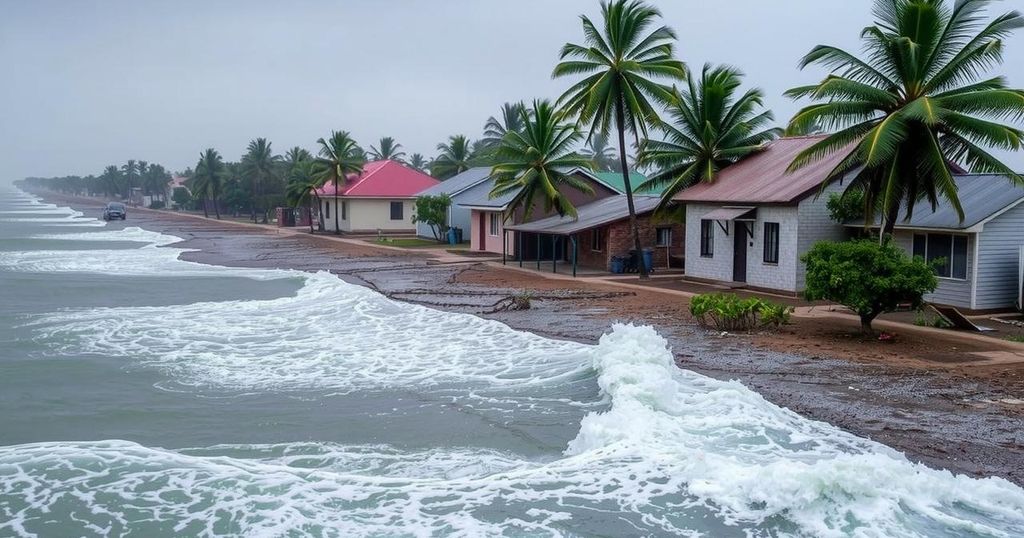Cyclone Chido: Death Toll Rises to 120 in Mozambique Amid Widespread Devastation

The death toll from Cyclone Chido in Mozambique has reached 120, with 868 injuries reported. The cyclone impacted over 680,000 individuals, leading to severe damage across Cabo Delgado, Nampula, and Niassa provinces. Emergency shelters have been established for displaced persons, and extensive infrastructure damage has been recorded, including the destruction of homes and schools.
The recently reported death toll from Cyclone Chido in Mozambique has tragically risen to 120, with an additional 868 individuals suffering injuries. The cyclone, which made landfall on December 15, has severely impacted over 680,000 people, as indicated by Mozambique’s national disaster relief agency. The northern provinces, particularly Cabo Delgado, Nampula, and Niassa, experienced catastrophic flooding and damage to infrastructure, displacing thousands and destroying significant numbers of homes, schools, and health facilities.
The National Institute for Disaster Risk Management and Reduction (INGD) has communicated that the cyclone resulted in the partial or complete destruction of over 140,000 houses and approximately 250 schools. Furthermore, nearly 110,000 students encountered disruptions to their educational endeavors as a direct consequence of the disaster. In light of the widespread devastation, governmental emergency shelters have been established to accommodate those displaced, currently hosting 1,349 individuals.
Cyclone Chido, which originated on December 5 over the southwestern Indian Ocean, initially wreaked havoc in Mayotte before landing in Mozambique. The INGD has highlighted the cyclone’s dire implications for the education and health sectors, stressing the critical need for resilient planning to shield social infrastructure from the increasing threats of climate change. Authorities and international humanitarian organizations continue to seek assistance to meet the urgent requirements of the impacted communities.
Cyclone Chido emerged as a powerful tropical cyclone, causing significant devastation upon its landfall in Mozambique. The cyclone is classified as a tropical depression due to its low atmospheric pressure and rotating wind pattern. These weather systems pose considerable risks, particularly in vulnerable regions such as northern Mozambique, which has struggled with similar disasters in the past, showcasing the urgent need for better infrastructure and disaster preparedness against the growing effects of climate change.
The destruction caused by Cyclone Chido exemplifies the alarming vulnerability of Mozambique’s northern provinces to tropical cyclones. With a rising death toll, substantial injuries, and hundreds of thousands affected, the aftermath continues to require immediate humanitarian assistance. Cyclone Chido serves as a poignant reminder of the urgent need for resilient infrastructure and effective disaster management strategies to safeguard communities against future climatic occurrences.
Original Source: www.socialnews.xyz






